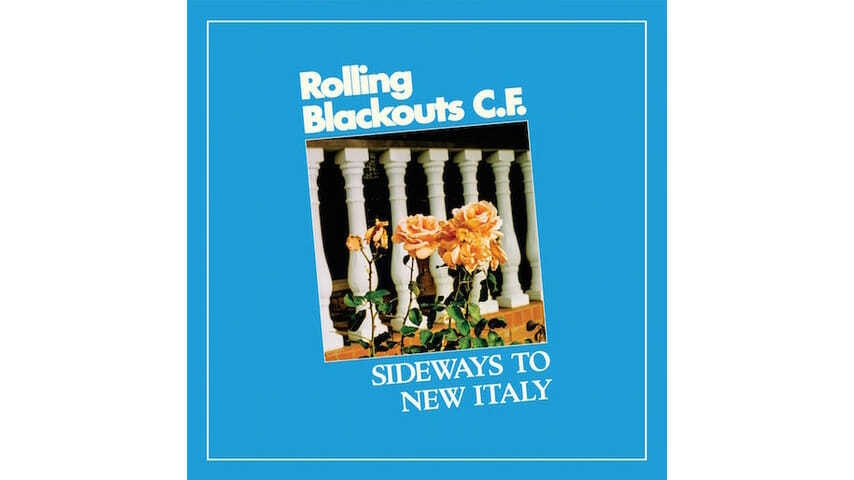Rolling Blackouts Coastal Fever Go Back to Move Forward on Sideways to New Italy
The Melbourne quintet prove you can go home again on their terrific sophomore album

In order to love and understand each other, first we must love and understand ourselves. It’s in that spirit that Rolling Blackouts Coastal Fever, Melbourne, Australia’s hard-touring indie-rock act, travel Sideways to New Italy, offering up a sophomore album that, though born out of the disconnection of being on the road for months at a time, seeks to trace the band’s humanity back to their roots. It’s an intimate, personal journey towards self-knowledge, with one foot in the past and another in the future, on which the rising “tough pop/soft punk” stars reshape their sonic identity while turning their lyrical focus on the images, feelings and memories that serve as life’s most precious connective tissue. The band combines those fragments into a mosaic greater than the sum of its parts, an accounting of times gone by, depicted via concrete detail and abstract imagery alike, that attempts to summon the spirit needed to move forward.
Fans of Rolling Blackouts C.F.’s The Go-Betweens-indebted, jangle-pop-tinged guitar-rock will find themselves on familiar ground on Sideways to New Italy. The quintet—which comprises singer-songwriter-guitarist trio Tom Russo, Joe White and Fran Keaney, plus bassist Joe Russo and drummer Marcel Tussie—arrived essentially fully formed with 2016’s Talk Tight, and have remained remarkably consistent since, from 2017 EP The French Press to their acclaimed full-length debut, 2018 standout Hope Downs. Their second album’s roots run deep through their creative output to this point: The chords of b-side standout “Cameo” originally belonged to Hope Downs’ abandoned title track, while the chorus of closer “The Cool Change” first appeared in a song Tom Russo, White and Keaney performed in a previous band back in the 2000s. And from those roots, the band continues to grow, excelling at their characteristically propulsive rock while making room for more emotion-imbued softness and nuanced instrumentation to shine through, a natural progression that quietly slips an arm around the listener, rather than grabbing them by the lapels.
Take album opener “The Second of the First” or lead single “Cars in Space,” which both allow dreamy languor to creep in around the edges of an exhilarating motorik chug. Even the opening moments of the former find the band wielding their array of guitars with a particular dynamism, intertwining chiming acoustic chords with a galvanizing electric riff, and Joe Russo’s bass thrums with that same electricity as Keaney bridges the gap between alienation and connection: “And I feel outside it / Lost on descent / Like two transplanted palms / You look like me.” As if to reinforce the depth of their intent, they recruit White’s partner and a close friend of the band to recite a spoken-word refrain over the psychedelic instrumental bridge: “Nothing is the same. The street hasn’t changed,” the duo chant, their voices melting into one, as if the song itself is holding those two seemingly contradictory truths simultaneously in mind.
-

-

-

-

-

-

-

-

-

-

-

-

-

-

-

-

-

-

-

-

-

-

-

-

-

-

-

-

-

-

-

-

-

-

-

-

-

-

-

-








































